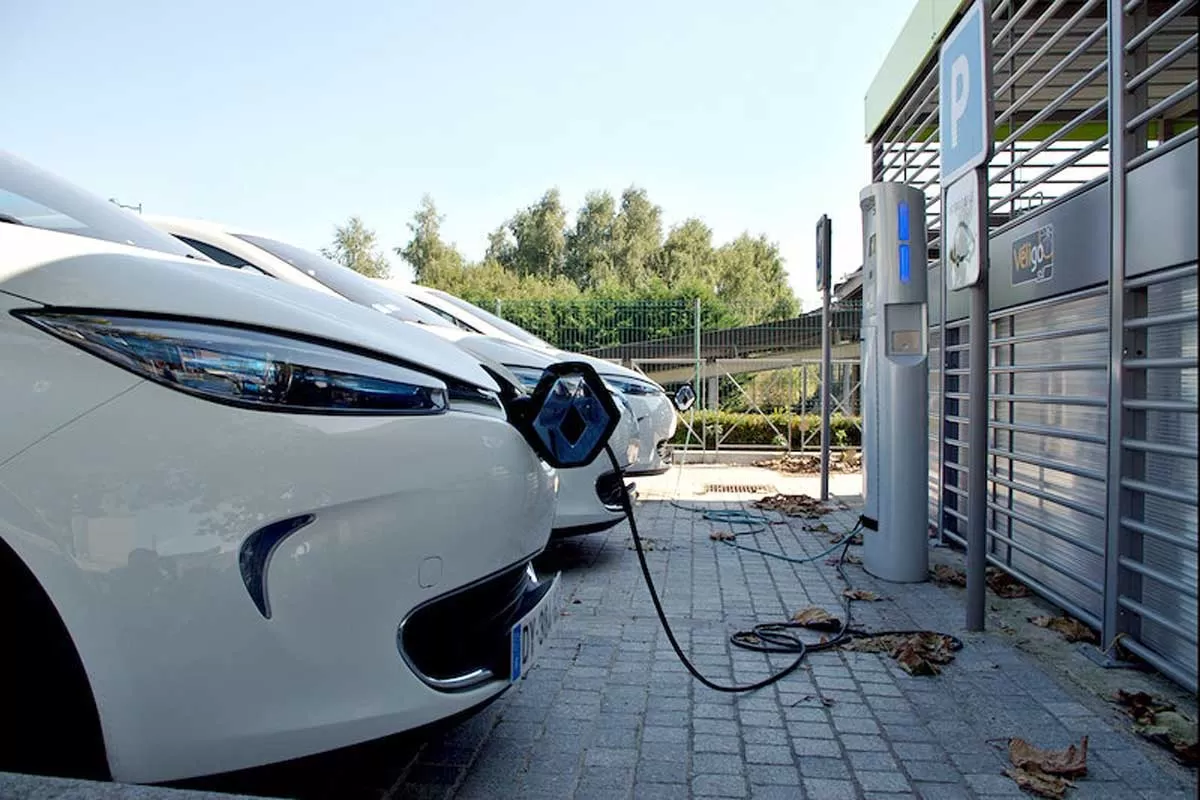60% Of New Car Launches In 2025 Are Electric
21 Dec 2024
5 Min Read
CW Team
The Indian automotive industry is on the cusp of a transformative era, with 2025 set to be a landmark year for electric vehicles (EVs). A striking 60% of all new car launches will be electric, underscoring a seismic shift in consumer preferences and a collective push by manufacturers towards sustainable mobility. This revolution reflects not just a response to changing environmental and economic imperatives but also an acknowledgment of the growing appetite for clean, efficient, and future-ready transport solutions.
Leading the Charge: Hyundai’s EV Strategy
Hyundai’s foray into India’s EV market began with the Kona Electric, the nation’s first long-range electric SUV. Launched five years ago, the Kona Electric offered an impressive range of 452 km, combining practicality with premium features. It paved the way for mainstream EV adoption and set a benchmark for the industry.
Building on this success, Hyundai introduced the Ioniq 5—a premium electric crossover with a futuristic design, cutting-edge technology, and an impressive range exceeding 600 km. With each model, Hyundai has not only met but exceeded expectations, cementing its reputation as a pioneer in the EV space.
The upcoming launch of the Creta EV in January 2025 marks Hyundai’s next big leap. Targeting the compact SUV segment, the Creta EV aims to strike the perfect balance between affordability and premium features. It is poised to redefine consumer expectations and further solidify Hyundai’s dominance in the EV market.
A Wave of Electric Innovation
Hyundai is not alone in this race. The automotive industry is witnessing an unprecedented wave of EV launches, with over 20 new car models set to debut in 2025. Among them, 12 will be electric, highlighting an industry-wide pivot towards sustainability. From compact SUVs to premium vehicles, the lineup includes:
• Hyundai Creta EV
• Maruti Suzuki E-Vitara
• Tata Safari EV, Harrier EV, and Sierra EV
• Toyota Urban Cruiser Electric
• Mahindra XUV.e8 and XUV.e9
• Kia EV
The EV Appeal: Why India is Switching
The rising popularity of EVs in India stems from a confluence of factors:
• Environmental Awareness: Increasing concerns about pollution and climate change are pushing consumers towards greener alternatives.
• Government Incentives: Attractive subsidies and tax benefits make EVs more accessible and affordable.
• Cost Efficiency: With lower running and maintenance costs compared to internal combustion engine (ICE) vehicles, EVs present a practical choice.
• Enhanced Technology: Advanced models like the Hyundai Ioniq 5, with its extended range and superior features, have addressed range anxiety and performance concerns.
The Indian automotive industry is on the cusp of a transformative era, with 2025 set to be a landmark year for electric vehicles (EVs). A striking 60% of all new car launches will be electric, underscoring a seismic shift in consumer preferences and a collective push by manufacturers towards sustainable mobility. This revolution reflects not just a response to changing environmental and economic imperatives but also an acknowledgment of the growing appetite for clean, efficient, and future-ready transport solutions.
Leading the Charge: Hyundai’s EV Strategy
Hyundai’s foray into India’s EV market began with the Kona Electric, the nation’s first long-range electric SUV. Launched five years ago, the Kona Electric offered an impressive range of 452 km, combining practicality with premium features. It paved the way for mainstream EV adoption and set a benchmark for the industry.
Building on this success, Hyundai introduced the Ioniq 5—a premium electric crossover with a futuristic design, cutting-edge technology, and an impressive range exceeding 600 km. With each model, Hyundai has not only met but exceeded expectations, cementing its reputation as a pioneer in the EV space.
The upcoming launch of the Creta EV in January 2025 marks Hyundai’s next big leap. Targeting the compact SUV segment, the Creta EV aims to strike the perfect balance between affordability and premium features. It is poised to redefine consumer expectations and further solidify Hyundai’s dominance in the EV market.
A Wave of Electric Innovation
Hyundai is not alone in this race. The automotive industry is witnessing an unprecedented wave of EV launches, with over 20 new car models set to debut in 2025. Among them, 12 will be electric, highlighting an industry-wide pivot towards sustainability. From compact SUVs to premium vehicles, the lineup includes:
• Hyundai Creta EV
• Maruti Suzuki E-Vitara
• Tata Safari EV, Harrier EV, and Sierra EV
• Toyota Urban Cruiser Electric
• Mahindra XUV.e8 and XUV.e9
• Kia EV
The EV Appeal: Why India is Switching
The rising popularity of EVs in India stems from a confluence of factors:
• Environmental Awareness: Increasing concerns about pollution and climate change are pushing consumers towards greener alternatives.
• Government Incentives: Attractive subsidies and tax benefits make EVs more accessible and affordable.
• Cost Efficiency: With lower running and maintenance costs compared to internal combustion engine (ICE) vehicles, EVs present a practical choice.
• Enhanced Technology: Advanced models like the Hyundai Ioniq 5, with its extended range and superior features, have addressed range anxiety and performance concerns.





















